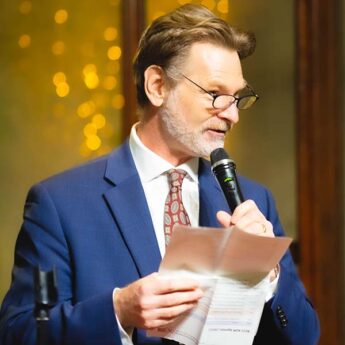On 27 January I was pleased to have the opportunity to address members of the British Chamber of Commerce in Japan (BCCJ) at our New Year networking event. We had planned that this would be a face-to-face event, but given the rapid rise in Omicron cases, a prudent decision was made to take proceedings online. Sharing my experience of the New Year holidays, I told attendees how I had marveled at the achievements of Nirmal “Nims” Purja in the recently released Netflix documentary, 14 Peaks: Nothing is Impossible.
Purja, who was born in Nepal, served 15 years in the British Army until retiring in 2018, aged 35. The following year, with support from an all-Nepalese team, he embarked on an astonishingly extreme challenge to climb all 14 of the world’s mountains over 8,000m in record time. For Purja, it would take six months and six days—the previous record having been a little less than eight years.
Finding strength
Self-evidently one of the greatest ever high-altitude climbers, you would be correct in thinking that Purja is a uniquely driven individual. For me, the most illuminating insight was a speech he gave to fellow climbers upon arriving at basecamp on K2. Several groups had returned from failed attempts to reach the summit, retreating due to the risk of avalanches. The mood was sombre, and many were on the cusp of conceding defeat.
Urging unity and teamwork, however, Purja shared his conviction that when most of us profess to have reached our limit, we are in fact only 45 percent of the way towards that perimeter of possibility. As a measure of his mindset, he does not attempt to rally his exhausted audience with an appeal for an additional five percent effort, he fully believes there is a further 55 percent to come. This is easy to say perhaps, but his exploits that follow leave the viewer in no doubt that Purja is someone who leads by example.
Shifting energy
Tenacity and resilience are clearly important aspects of Purja’s leadership style and are qualities that we all possess to a greater or lesser extent. There is no shortage of published advice on how to develop these qualities, and I especially like the recommendation that we remain hopeful. I am drawn to that by Canadian writer Catherine DeVrye’s neat summary of how hope can be nurtured, and her elegant acronym for remembering. Memorably, the acronym is “HOPE”: help, optimise, persist, empower.
Expanding slightly, that translates to help other people, optimise opportunities, persist no matter what, and empower those around you. In essence it is an invitation to focus our energy on the contribution we can make to others, rather than becoming too self-absorbed. Such an approach will doubtless resonate with those who identify with the servant–leader style of management.
Labels aside, I am grateful that there are many BCCJ members who give generously of their time and resources for the benefit of the chamber. Rest assured there is always an opportunity to do more, and for those who are interested I encourage you to submit your nomination for election to the BCCJ Executive Committee. Details of the process will be published on BCCJ channels shortly, leading up to the announcement of election results at the Annual General Meeting in April.

